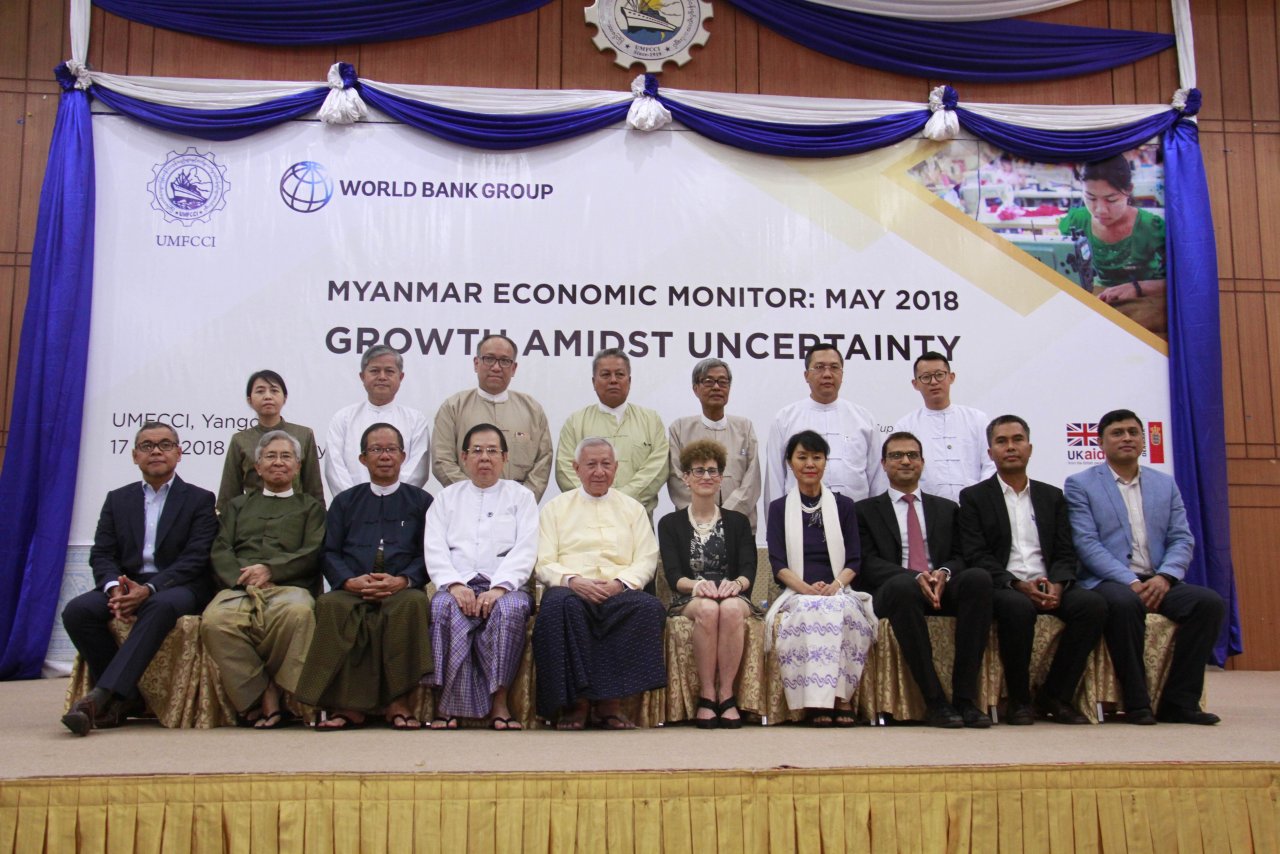Myanmar poised for economic improvement amid uncertainty, says World Bank
GIVEN THE government’s efforts to accelerate reforms and to modernise the financial sector, Myanmar’s economy is projected to increase to 6.7 per cent next year, according to Ellen Goldstein, World Bank director for Myanmar, Cambodia, and Laos.
She said at the launch of the latest Myanmar Economic Monitor on Thursday that the medium term outlook for Myanmar remains positive despite some risks. She expects a surge in foreign investment flows to drive further growth.
“The report shows that Myanmar’s economy is doing better this year, and we hope the country to maintain the momentum,” she said.
“The government needs to ensure the growth is sustainable and inclusive. They need to find ways stimulate growth and investments to ensure financial inclusion.”
Goldstein stressed an urgent need to address the emerging risks that could affect business sentiment and weaken future performance.
“The pick-up in growth and improvement in the macroeconomic situation are encouraging,” she said.
Despite growing global and domestic uncertainty, the growth is estimated to have increased to 6.4 per cent last year from 5.9 per cent in 2016-17 fiscal year. This growth was driven by a recovery in agriculture and especially crop production, improved manufacturing performance, and strong services growth despite a slight slowdown likely due to tourism and banking sector uncertainties, according to the report.
Inflation,which moderated to 5.5 per cent last year from 7 per cent in FY2016-17, is expected to ease further to 4.9 per cent next year.
Goldstein hailed the government’s bid to finalise Myanmar Sustainable Development Plan, which could serve as a platform to make progress in resolving conflicts that jeopardise inclusive and sustained growth.
She warned not to underestimate the value of the plan, as it is a clear direction and motivation for Myanmar people, investors and the international community.
Goldstein urged focusing on two key areas: providing an enabling environment for private sector growth and using fiscal space wisely by spending more effectively to meet urgent needs through investing in infrastructure such as energy and transport, as well as investing in Myanmar people by increasing government expenditures in the education sector.
Hans Anand Beck, the World Bank’s lead economist for Myanmar, said a stable macroeconomic environment and policy certainty would encourage private sector activities. He also stressed the need of well- targeted public investments for the economy to sustain its positive momentum amid intensifying risks.
“Providing and pricing electricity well, implementing the companies act, servicing tax payers, and securing the environment for financial transactions, can help in this regard,” he said.
Domestic downside risks to the baseline outlook have intensified due to the ongoing uncertainty related to the crisis in Rakhine State.
While growing global trade policy uncertainties may affect the recovery in global trade, impacts on Myanmar are likely to be modest, he said.
U Myint, former chief economic adviser to the President, believes the report has dealt with major economic and social issues in Myanmar.
He suggested the World Bank to study on income distribution in Myanmar in the upcoming reports.
“GDP [gross domestic product] could be rising, but if income distribution is unfair and uneven, then benefits of the increase go mostly to a small group of people,” he said.
The report also states that problems with finding skilled labour persist, which U Myint considers brain drain as a challenge that urgently needs to be addressed.
“Our young smart and skilled people are leaving the country because together with old folks like us we are not clear what is going on in the economy and where it is heading,” he said.
He said millions of Myanmar nationals went abroad to make ends meet not only for themselves but more importantly to meet daily living expenses of their family members left back home.
Only economic and social progress would bring them back to the country, he warned.
Source: http://www.nationmultimedia.com/detail/Economy/30345753


 English
English




